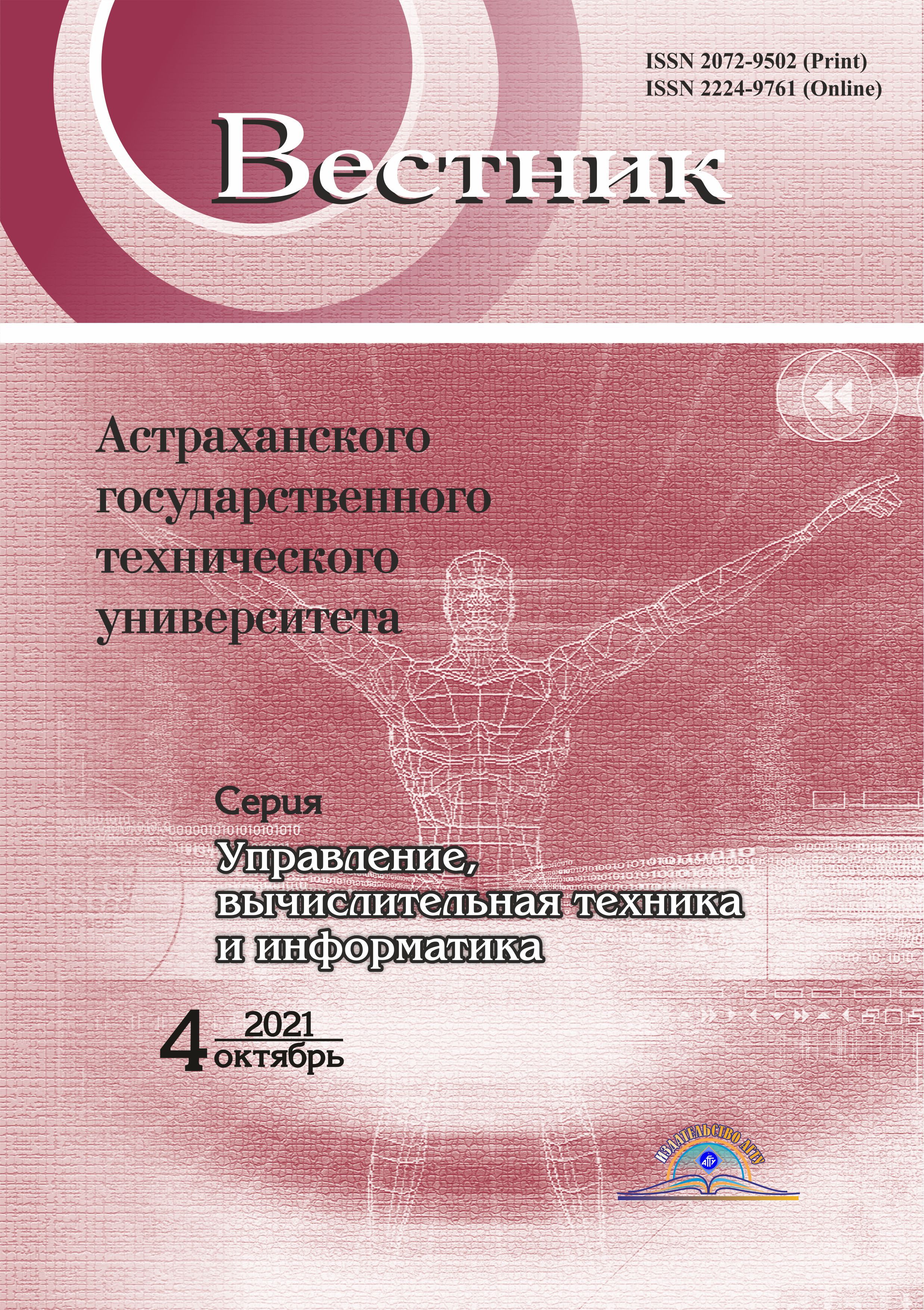Irkutsk, Irkutsk region, Russian Federation
Russian Federation
The paper highlights the results of a regression model contest organized using the computing technology and presents the mathematical models of the impact of economic indicators (the cost of exported crude oil, petroleum products, natural gas, direct investment abroad and to Russia, the volume of GDP) on the amount of exports and imports of telecommunications, computer and information services (ICT). The choice of such output indicators in the model is stipulated by a significant growth of the ICT world market over the past decades. Besides, the relative growth of telecommunications, computer and information services is much more dynamic compared to services in the conventional spheres such as transportation, construction, and goods processing. Another important reason for choosing these particular indicators is a high level of participation of IT enterprises in the ICT services export. According to some estimates, about 2,000 firms in the in-dustry are involved. In other words, more than 60% of ICT enterprises in Russia are exporting their services to foreign countries, the most countries-importers of ICT services from Russia being the European countries and the United States. The amount of ICT services, as follows from the formal and meaningful analysis of the constructed models, is more than 50% provided by the level of de-velopment of the country's economy, in which GDP is the main indicator. At the same time, the dynamics of both export and import of telecommunications, computer and information services is also significantly influenced by the cost of exported raw materials: crude oil, oil products and natural gas. The models presented in the work can be effectively used for further detailed analysis of the influence of macroeconomic factors on the development of information and computer technologies and for solving a wide range of medium and short term forecasting problems.
information and computer technologies, amount of import and export, regression model, model competition, adequacy criteria, oil, petroleum products and natural gas, gross domestic product
1. Kuznecova E. I. Nacional'naya ekonomicheskaya bezopasnost' kak predmet ekonomicheskoy strate-gii gosudarstva // Nacional'nye interesy: prioritety i bezopasnost'. 2008. T. 4. № 7 (28). S. 30-34.
2. Isham J., Woolcock M., Pritchett L., Busby G. The varieties of resource experience: Natural resource export structures and the political economy of economic growth // World Bank Economic Review. 2005. V. 19 (2). P. 141-174.
3. Farzanegan M. R., Markwardt G. The effects of oil price shocks on the Iranian economy // Energy Economics. 2009. V. 31 (1). P. 134-151.
4. Ishhanyan M. V., Sotnikova O. A. Ekonometricheskiy analiz zavisimosti mezhdu dinamikoy mi-rovogo rynka syroy nefti i kursom akciy transportnyh kompaniy // Vklad transporta v nacional'nuyu ekonomicheskuyu bezopasnost': sb. tr. II Mezhdunar. nauch.-prakt. konf. (Moskva, 06 aprelya 2017 g.) / pod red. R. A. Kozhevnikova, Yu. I. Sokolova. M.: Izd-vo MIIT, 2017. S. 154-156.
5. Nurunnabi M. Transformation from an Oil-based Economy to a Knowledge-based Economy in Saudi Arabia: the Direction of Saudi Vision 2030 // Journal of the Knowledge Economy. 2017. V. 8 (2). P. 536-564.
6. Zaorskiy G. V., Ilyuschenko T. V. Resursnoe obespechenie gosudarstvennogo regulirovaniya ekonomiki // Problemy razvitiya mirovoy i rossiyskoy ekonomiki: materialy Mezhdunar. nauch. konf. (Irkutsk, 26 marta 2013 g.) / otv. red. V. P. Gorev. Irkutsk: Izd-vo Baykal. gos. un-ta ekonomiki i prava, 2013. S. 61-78.
7. Ivanter V. V. Strategiya perehoda k ekonomicheskomu rostu // Problemy prognozirovaniya. 2016. № 1 (154). S. 3-7.
8. Nath H. K., Liu L. Information and communications technology (ICT) and services trade // Information Economics and Policy. 2017. N. 41. P. 81-87.
9. Liu L., Nath H. K. Information and communications technology and trade in emerging market economies // Emerging Markets Finance and Trade. 2013. V. 49 (6). P. 67-87.
10. Tay C. Comparison of the impact of information and communication technology between bilateral trade in goods and services // Journal of System and Management Sciences. 2020. V. 10 (1). P. 1-31.
11. Green R., Burgess J., Turner G. The ICT Sector, Growth and Productivity: Ireland and Australia Com-pared // The Economic and Labour Relations Review. 2004. V. 15 (1). P. 99-127.
12. The ICT Development Index (IDI): conceptual framework and methodology. URL: https://www.itu.int/en/ITU-D/Statistics/Pages/publications/mis2015/methodology.aspx (data obrascheniya: 15.06.2021).
13. Central'nyy bank Rossiyskoy Federacii: oficial'nyy sayt. URL: https://www.cbr.ru/ (data obrascheniya: 15.06.2021).
14. Okunev D. O. Vliyanie mirovyh cen syroy nefti na cenu nefteproduktov v Rossii, Kitae i SShA // Evraziyskoe prostranstvo: dobrososedstvo i strategicheskoe partnerstvo: materialy VIII Evraz. ekonom. foruma molodezhi (Ekaterinburg, 19-21 aprelya 2017 g.): v 3 t. Ekaterinburg: Izd-vo Ural. gos. ekonom. un-ta, 2017. T. 2. S. 87-90.
15. Borenstein S., Cameron C., Gilbert R. Do gasoline prices respond asymmetrically to crude oil price changes? // Quarterly Journal of Economics. 1997. V. 112 (1). P. 304-339.
16. Bazilevskiy M. P., Vergasov A. S., Noskov S. I. Gruppovoy otbor informativnyh peremennyh v regressionnyh modelyah // Yuzh.-Sib. nauch. vestn. 2019. № 4-1 (28). S. 36-39.
17. Noskov S. I. Tehnologiya modelirovaniya ob'ektov s nestabil'nym funkcionirovaniem i neopredelennost'yu v dannyh. Irkutsk: Oblinformpechat', 1996. 320 s.
18. Bazilevskiy M. P. Analiticheskie zavisimosti mezhdu koefficientami determinacii i soot-nosheniem dispersiy oshibok issleduemyh priznakov v modeli regressii Deminga // Matematicheskoe modelirovanie i chislennye metody. 2016. № 2 (10). S. 104-116.
19. Bazilevskiy M. P. Analiticheskie zavisimosti dlya nekotoryh kriteriev adekvatnosti modeli regressii deminga // Vestn. Irkut. gos. tehn. un-ta. 2016. T. 20. № 10 (117). S. 81-89.
20. Noskov S. I., Bazilevskiy M. P. Mnozhestvennoe ocenivanie parametrov i kriteriy soglasovannosti povedeniya v regressionnom analize // Vestn. Irkut. gos. tehn. un-ta. 2018. T. 22. № 4 (135). S. 101-110.
21. Noskov S. I., Vrublevskiy I. P. Analiz regressionnoy modeli gruzooborota zheleznodorozhnogo transporta // Vestn. transporta Povolzh'ya. 2020. № 1 (79). S. 86-90.
22. Noskov S. I. Vybor metoda ocenivaniya parametrov lineynoy regressii na osnove vyyavleniya anomal'nyh nablyudeniy // Vestn. Voronezh. gos. tehn. un-ta. 2021. T. 17. № 2. S. 24-29.
23. Noskov S. I. Metod smeshannogo ocenivaniya parametrov lineynoy regressii: osobennosti pri-meneniya // Vestn. Voronezh. gos. un-ta. Ser.: Sistemnyy analiz i informacionnye tehnologii. 2021. № 1. S. 126-132.
24. Noskov S. I. Ocenivanie parametrov lineynoy regressii posredstvom maksimizacii chisla sovpadeniy znakov prirascheniy fakticheskih i raschetnyh znacheniy zavisimoy peremennoy // Informa-cionnye tehnologii i matematicheskoe modelirovanie v upravlenii slozhnymi sistemami. 2021. № 2 (10). S. 109-111.
25. Noskov S. I., Bazilevskiy M. P., Vrublevskiy I. P. Ocenka rezul'tatov srednesrochnogo progno-zirovaniya ekspluatacionnyh harakteristik zheleznoy dorogi // Vestn. Ural. gos. un-ta putey soobscheniya. 2020. № 1 (45). S. 51-57.















